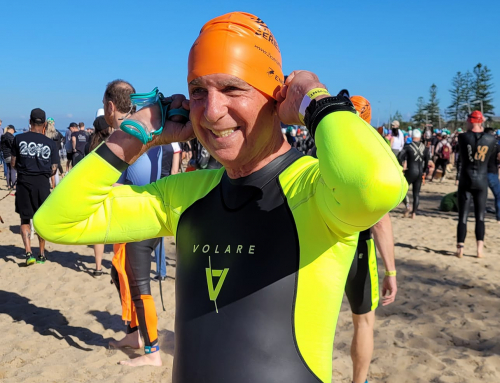Life can be tough, even with the most fortunate of us who has lived the “charmed life”, trials, frustrations, mishaps and tragedy can strike, testing our ability to stay happy and resilient against life’s stressors. Arguably, engaging in endurance sports such as triathlon can be one of the most powerful mechanisms that build on and maintain psychological health.
The benefit to your physical health is a given with triathlon lifestyle however from a mental well-being perspective it can also be seen as equally advantageous.
We are faced everyday by all kind of stimuli that creates stress, if this becomes chronic, creates a physiological and psychological response which may result in outcomes such as constant worrying, negative self-worth, depression and anxiety.
Developing mental skills such as self-determination, optimism in the face of adversity, alongside other training habits such as goal setting, building on your achievements and gaining feedback on how you are travelling with each goal help athletes succeed in their sport by building their feelings of self confidence and self efficacy. These skills also help you to succeed in life as well, as it gives you the coping mechanisms to deal with the stressors that everyday life brings.
Overtraining – The Dangers…
Whilst the triathlon lifestyle builds your mental and physical toughness, there are some important reasons why you need to ensure you insert “balance” into your schedule. Whilst you may think you are doing the right thing by constantly pushing your body to its limit day in day out, consider…
The Impact on your Physical Health:
Consistently putting massive amounts of strain your body will place you at higher risk of injury and illness when compared with a like athlete that also incorporates recovery into their program. Some physical signs and symptoms of overtraining to look out for include:
- Elevated resting pulse / heart rate
- Frequent minor infections
- Increased susceptibility to colds and flus
- Increases in minor injuries
- Chronic muscle soreness or joint pain
- Exhaustion
- Lethargy
- Weight loss
- Appetite loss
- Insatiable thirst or dehydration
- Intolerance to exercise
- Decreased performance
- Delayed recovery from exercise
The Impact on your Mental Health
Chronic excessive overtraining has been associated with disrupted mood levels amongst other negative states of mind. Being unable to maintain a positive mood state, will work to undermine and counteract all those fantastic mental resilience skills that you’ve worked so hard to build! In extreme cases of overtraining, athletes have developed “staleness syndrome” – a condition associated with deteriorating performance and behaviour disturbances such as clinical depression. Some psychological signs and symptoms include:
- Fatigued, tired, drained, lack of energy
- Reduced ability to concentrate
- Apathy or no motivation
- Irritability
- Anxiety
- Depression
- Headaches
- Insomnia
- Inability to relax
- Twitchy, fidgety or jittery
The Impact on your Relationships
Having a social network whether it is family, friends or squad mates, is critical to maintaining a supportive environment which will enable you to not only perform at your best when needed but help keep you resilient against the constant training and competition that comes with triathlon and life in general. If we are constantly on edge, angry or hard to get along with, this will impact our ability to maintain these essential relationships that are so important to our well being.
How to Create a Balance
Use the skills that enable you to structure your training week to include recovery as well…
- Follow the recovery advice in your program – it has been put in there for a reason. Basic performance theory states you cannot perform at your peak at all times, in fact your ability to maintain the mental stamina and physical performance will start to decrease significantly if you don’t let yourself rest and consolidate the work you’ve been putting it through!
- Becoming aware – It’s hard to find that awareness about yourself if you’ve been thinking in a certain way for a long period of time (think of an ingrained habit). A lot some time to reflect on how you are feeling, how you’ve been behaving – have you been showing some of those physical or psychological signs mentioned above? Use the people around you to give you feedback on this and be open to act on the response you may get!
- Breathe – abdominal breathing techniques are effective ways to calm and slow down, once practiced well breathing acts as a natural tranquiliser to your nervous system which therefore has a flow on effect to all your other systems – such as your digestion, hormones and allows you to think more clearly.
- Meditate – meditation helps you do is allow your self time to sit with your thoughts or no thoughts without worry and focusing on simply letting go. The result is a calmer mind body and spirit, which will only serve to benefit you with those pre race nerves. It doesn’t have to be difficult or time consuming. There are many self-guided apps you can use.
- Laugh – using humour is one of the best ways to break through the seriousness of hard training and the cumulative tension/stress that it causes, finding ways to enjoy and laugh at the little things in life is key to this
Having the courage to admit that you might not be invincible, and that sometimes its ok to be kind to yourself will set you in good stead to become the most well rounded athlete that you can be to perform at your peak.
For more information or advice on any of this information, please contact GPC Coaches Stephane or Kate who can organise a coaching session with me.









